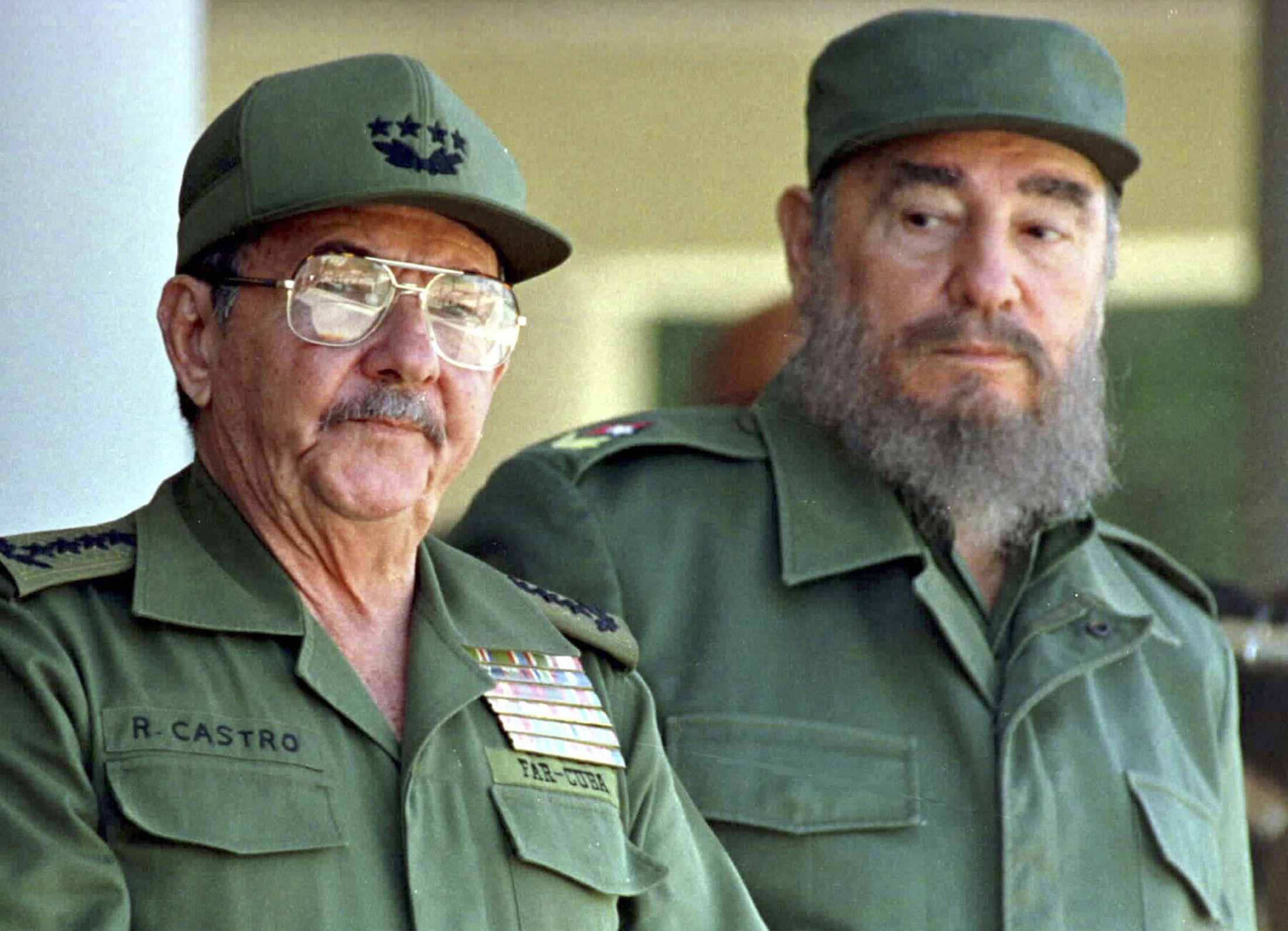Castro, Raúl (1931-…), was president of Cuba from 2008 to 2018. Before that, he served as acting president from 2006 to 2008. As president, Castro strengthened his authority over the armed forces and the Communist Party of Cuba. His government enacted some economic reforms and eased some restrictions on personal freedoms. Castro also held the powerful post of first secretary, or head, of the Communist Party from 2011 to 2021.

Raúl Modesto Castro Ruz was born on Jan. 3, 1931, on a rural estate near Birán, Cuba. On July 26, 1953, he took part in an attack on the Moncada army barracks in Santiago de Cuba. Raúl’s brother Fidel Castro led the attack, which marked the beginning of armed resistance to the government of Cuban dictator Fulgencio Batista. Within several days of the attack, Batista’s forces captured Raúl and Fidel. The brothers were imprisoned for nearly two years. Public pressure then caused Batista to grant them amnesty.
After their release, the Castro brothers went to Mexico, where they planned a guerrilla uprising against Cuba’s government. They returned to Cuba in December 1956 with fellow revolutionary Ernesto “Che” Guevara to begin a rural guerrilla campaign. On Jan. 1, 1959, after two years of fighting, Batista fled Cuba. Fidel then took over the government. See Twenty-sixth of July Movement.
From the beginning of the revolutionary government, Raúl served as Fidel’s second-in-command. In 1959, Fidel appointed Raúl defense minister and leader of Cuba’s armed forces. Raúl also served for many years as second secretary of the Cuban Communist Party. The Castro brothers supported revolutionary movements and leaders in Africa and throughout Latin America. In the early 2000’s, they formed a trading alliance with other socialist countries in Latin America. This alliance helped Cuba withstand the United States trade embargo in effect since 1960.
In 2006, President Fidel Castro became ill. Raúl then became acting president of Cuba. In 2008, Fidel announced that he would not accept reelection to the presidency. Cuba’s National Assembly elected Raúl as Fidel’s successor. In 2011, Raúl also became first secretary, or head, of the Cuban Communist Party. In 2013, he was reelected president of Cuba. Under Raúl’s leadership, the Cuban government gradually eased some restrictions on the economy and travel abroad. In 2015, Cuba and the United States restored diplomatic relations after more than 50 years. Raúl hosted a visit by U.S. President Barack Obama in 2016. Castro stepped down as president in 2018, and as first secretary of the Communist Party in 2021. Miguel Díaz-Canel was chosen to succeed him in both roles.
